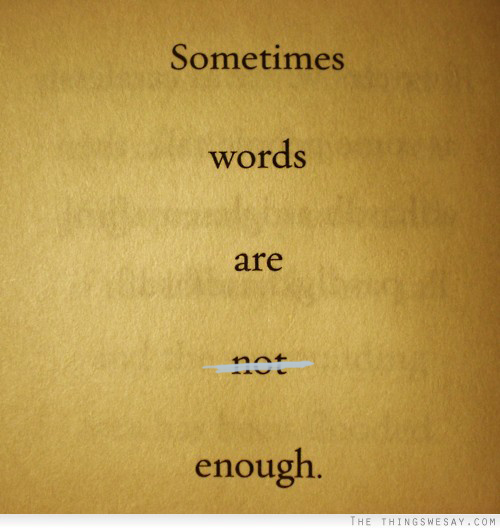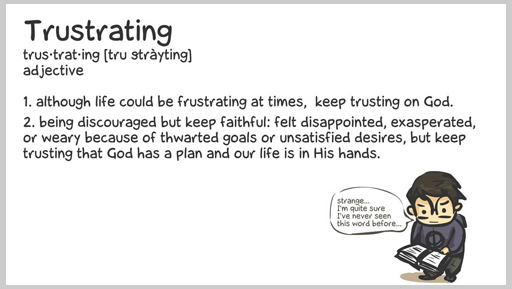There is so much to see and slurp around in this happy, yummy land.

‘Noodles.’
The word piped in from the cubicle adjacent to mine. And that is one item in the English vocabulary that perks up my ears, props up my seat, and peps up my limbs without fail whenever I hear it. I stood on my chair and peered over the partition. Mrs Hanson looked up and smiled.
‘Slick noodles oozing dark soy sauce’, effused my neighbor. ‘I will go to Malaysia again just to slurp them once more.’
Mrs Hanson had visited Southeast Asia a few months earlier, and of all the impressions that she carried back home the strongest was the one that had smacked her tastebuds and sensory glands with a mighty wallop of stringy flavors. Never had she encountered a gastronomic experience such as the one that swamped her senses when she was served the oozy noodles in the alleys of Malaysia’s several chinatowns.
Knowing that I would be heading towards the same region in the next few weeks, she gave me a few tips on how best to enjoy my visit. I told her I would not miss the noodles at any cost, and got down from my chair.
By the time I landed in Kuala Lumpur and was heading toward my hotel, my resolution to savor at first opportunity the dish that had swept Mrs Hanson off her tongue was shoved to the back of my mind. I was here to have a good time, and my first wish now was to visit one of the 200 charming islets I had read so much about, and to plunge into the waters around them, splash about till my limps grew weary, and then go lie on the sparkling white sands under a swaying palm (no risk of a coconut falling on my nut – there were nets tied directly under the bunch of coconuts on every tree.)
What’s unique about some of these islets is that they are still mostly virgin territory, a rare treat in a world where almost all the beautiful natural spots in a country are overtrodden by lascivious tourists.
Malaysia’s tiny blobs of land a few miles off the main coastland are an explorer’s dream of Eden recreated. They seem like they came into being when a cosmic splash broke up a huge paradise into little green gems bobbing in blue waters.
The beaches on these islets are fringed with gently swaying palms leaning toward the mighty sea in obeisance – a sight which attracts tourists on passing-by cruiseliners with more alluring power than that of a half-naked siren on whaleback in the middle of the ocean. These beaches that nature had so generously overlaid with pristine soft sand are a pleasure to walk and play on and be half-buried in.
The azure waters lapping over soft coral reefs about 50 meters away are a splish-splashy delight for swimmers and snorkelers. Got the picturecard image in your mind? Now add a quaint fishing hamlet of thatched dwellings to that image, and you have visualized an idyllic destination that is probably unsurpassed in its natural attractions by any other spot in the Far East.
The tropical climate ensures a weather that ranges from comfortably warm to bearably hot all year round; at the same time it also means you can be caught wet any time by a sudden short burst of the frequent showers. But if you wish, when the weather seems to be getting too sultry for your skin’s liking, you can quickly head for one of the several mist-shrouded hills.
There you can hire a bungalow located in the midst of a dense rainforest. From within its safe confines you can often enjoy the sight of wildlife foraging with their own kind, and sometimes, feeding on other kind. The foraging kind include bears, tapirs, orangutans, elephants, pangolins, mousedeers, and more, while the preying ones usually are the tigers and leopards. At least one overcurious bungalow denizen has gone missing in big cat territory. So don’t trek alone in the forest.
Where it is safe to trek with a guide, take along a machete…not to protect yourself. On many of the jungle paths you will have to cut your passage through dense creepers and undergrowth. If you trek in the right places, you may even come across one of nature’s most amazing sights – the world’s largest, and stinkiest, flower – the rafflesia. In full bloom it measures three feet in diameter!
Another of Malaysia’s attractions are its limestone hills and caves. If you are not claustrophobic, and not allergic to bat droppings, I would strongly urge you to peep into a few of these caves. They are treasure chambers of mystery and natural wonders. The stalagmites and stalactites here are reputed to grow at such monstrous pace that if you watch their tips carefully, you can actually see them growing before your eyes!
Some of these caves have never yet been fully explored to its full depth. A few contain sculptures and other evidences of ancient human habitation. In one of the caves that I went in, I saw a packet of shelled peanuts alongside some incense sticks. Being somewhat hungry, and assuming some earlier tourist had dropped it, I picked the packet up and started munching the nuts as I continued to explore the dark cavern.
After my return to the UAE, when I told Mrs Hanson about my nutty cave discovery, she gasped. ‘You took the food offered to the ancestors of some Chinese tourist! There is a strong belief that one who desecrates the food of the gods will go hungry for the next seven days. Did you?’ she asked. ‘Nope’, I said. I suppose a religious gaffe committed in a twinge of hunger in a foreign land is something no ancestor can take offense at.
No, I did not starve for the next seven days. Instead, for more than a week, I enjoyed the world’s most succulent, the most slippery, and the most slurp-worthy dish in gastronomical history, or at least in my gastrointestinal history – the truly authentic Hakka noodles prepared by the verily genuine Chinese chefs whose ancestors really came from the actual shanty avenues of Canton. I suppose no noodles anywhere else can match this height of authenticity and sheer flavor. More of that a little later.
Malaysia’s attraction is enhanced by its three main ethnic groups, Malay, Chinese, Indian, each providing visitors with its own entertainment, history, culture and cuisine. Experiencing the different cuisines is a trek through adventurous culinary woods where you encounter sweet, sour, salty, spicy and fiery surprises and shockers. Here are a few your senses should not be deprived of:
Malay – nasi goring (fried rice), ayam goring (with chicken), nasi lemak (coconut rice with anchovies, peanuts and curry); Chinese – local soups, hainan (chicken), and especially mee (wheat and rice noodles) served in various choices of thickness, lengths and flavors; Indian – rice on a banana leaf, with your choice of curries and chutneys, masala dosai (a kind of rolled pancake), biriyani (spiced rice with chicken or mutton), tandooris (oven baked flat bread).
As for choice of setting, you may dine out at the open-air stalls of the night hawkers, where, under a softly humming petromax lantern, you can sit and enjoy the freshly cooked chowmeins and chopsueys, and keep on ordering and eating them, if you wish, till the mee hours of the morning, which is a couple of hours before sunrise.
On another day or night, you may opt for a sidewalk Chinese café. And it is here in one of those cafes that I suddenly remembered my colleague’s words…when the first sauce-dripping string slid down my esophagus, and the stunning flavor and aroma awoke every sensory bud in my body to a glorious chorus of ‘hurrah!’ She was right. I think I too would make another trip to Malaysia even if it is solely for the purpose of savoring again what I just did.
Later, I tried to have a repeat of the experience in a starred hotel, but nothing happened. The noodles there tasted like any you get in a good Chinese restaurant in other countries – it’s ok, but nothing to salivate about. Something was missing in the slithery stuff you get in the grand hotels and posh eateries. Perhaps it’s the tincture of the sweat of the humble cooks in the sidewalk cafes, whose one aim in life seems to be to give you the very best they can concoct with all their heart for your mouth’s ecstasy.
Now I consider myself something of a connoisseur when it comes to noodles. Wherever in the world I travel to, I make sure I visit at least one Chinese restaurant in the city I am in. I have had noodles prepared in Dubai by ‘Chinese’ chefs from Lebanon, in Cairo by Cantonese ‘natives’ who strangely looked very natively Egyptian to me, in Calcutta’s Chinatown by genuine fourth-generation Chinese cooks who, in their homes, daily have chapattis for lunch, speak Bengali as their mother-tongue and couldn’t even count upto 10 in their great-grandfather’s language. The noodles they prepare has little in common with the noodles you get in the sidewalks of Malaysia. In Chinese restaurants in India, for example, noodles is invariably served with a lavish proportion of carrots, cabbage and lentils, all of which are anathema to any authentic dish of noodles. In Dubai and Cairo, noodles is arabized with kebabs, which camouflages the taste for which you ordered the noodles in the first place.
So, now I know, if anytime I am overwhelmed by a desire to savor noodles in all its true flavors, there is only one place in the universe I need to book a flight to.
After one has wallowed in noodles to his gut’s content, there are three other lesser, but unforgettable, sensory encounters in Malaysia he shouldnt miss – two for the palate and one for the soles. Along with noodles, nowhere else in the world can you enjoy these encounters in the intensity of the gustatory, olfactory and tactile sensations as they are offered in this peninsula.
The first is a drink I used to enjoy to the utmost in my boyhood days in Malaysia. It is called ‘chendoul’ – a glassful of greenish brown milky liquid with green strings of vermicelli floating in it. You wouldnt find it in any restaurant, but only in the side alleys of the older parts of the town. Nothing in liquid form has so delighted the nerve endings from the tip of my tongue down to the bottom of my belly like chendoul. There are a couple of corollary drinks available with the chendoul vendor, and you should attempt to try them all at different times, but you may find none as deliciously titillating as the greenish elixir.
Then, of course, there is the durian. Nobody I know who has encountered the durian has a passive view of it. They either hate it with all the might of their nostrils, or they love it enough to cross oceans for it. To the former, the smell of durian is shockingly very close to that of hydrogen sulphide seeping through a crack in a rotten egg. To the latter, the durian’s whiff is enough to make them drop every other activity they were engrossed in, and rush to the source of the seducing aroma. The taste is even more potent – toxic to the durian hater, tonic to the lover.
Don’t try to rip open a durian yourself; get a native to do it for you, because the fruit, no matter how delicious inside, has the most dangerously spiked skin among nature’s conceptions.
I cannot close my thoughts on Malaysia without mentioning the third encounter, which, in the area of tactile sensation, is undoubtedly the most soul satisfying and sole soothing experience you can ever get as a traveler anywhere on good earth.
As you stroll on some of the busy sidewalks of Kuala Lumpur, especially in Jalan Ismail or Jalan Bukit Bintang, keep an eye out for rows of stools and people sitting on the pavement beside them. If you can find a vacant stool, go quickly and sit on it. And here, for about US$ 2 or 3, a local practitioner will begin his one-hour session on your tired soles. Each pressure of the practitioner’s finger on a vital point on the bare bottom of your limb sends an out-of-this-world sensation shooting all the way down to the depths of your soul and up to the top of your scalp and out from the tips of your ear lopes. The hour often includes a little shoulder time, too.

Malaysia is not a nation as plentiful and diverse in its natural attractions as China or India, but it proves the far more attractive destination on several counts, of which noodles is numero uno.
Pappa Joseph














